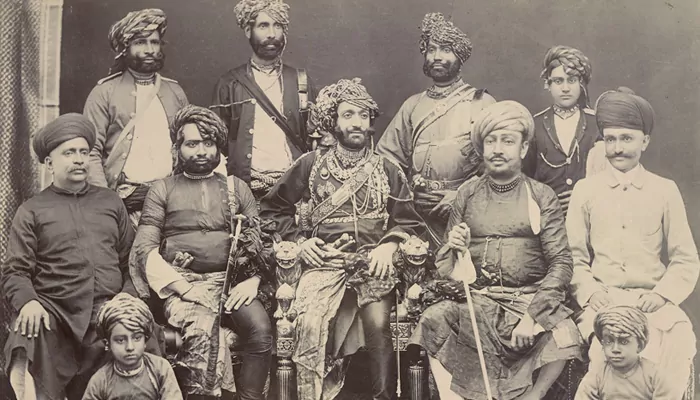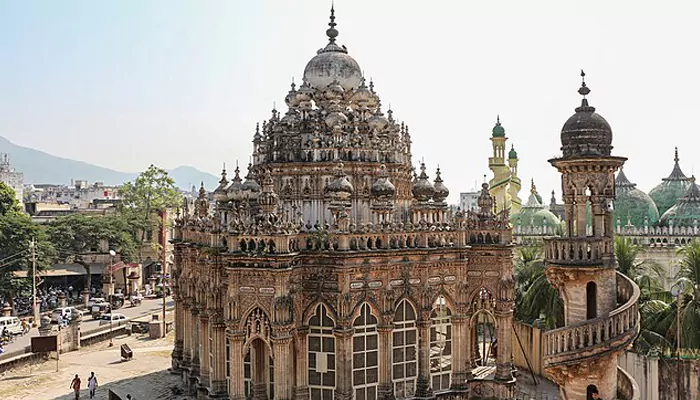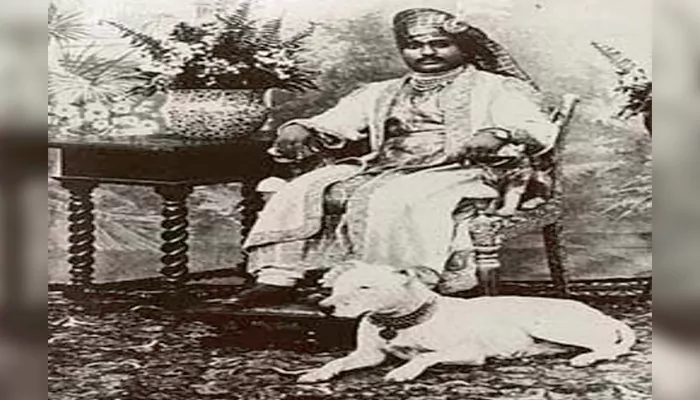
Junagadh’s ruler funded freedom — quietly, and at great risk
In the thick of India’s freedom struggle, kings and nawabs were often seen as protectors of the British Crown. Many owed their titles, palaces, and privileges to imperial favour. But not all. In the princely state of Junagadh, tucked along the Kathiawar coast, whispers of dissent stirred behind gilded doors. Nawab Mahabat Khan III, remembered by history for acceding to Pakistan in 1947, is often cast as a villain in nationalist accounts. Yet fragments of testimony suggest a more complicated legacy—of a ruler whose court secretly aided Gandhi’s movement, even as the Nawab publicly appeared loyal to the Raj.
Nawab Mahabat Khan ruled a Muslim dynasty over a largely Hindu population. Junagadh had prospered under his reign. He was a patron of the arts, a lover of animals, and had a reputation for eccentricity—he once reportedly had a hundred dogs, each with a personal servant. But in 1947, at the hour of India’s independence, the Nawab shocked the nation by announcing Junagadh’s accession to Pakistan. It was a geographically absurd move. Junagadh was surrounded by Indian territory. Worse, it ignited unrest among his subjects.
But while the Nawab’s decision seemed defiant, insiders spoke of quiet resistance within the palace. Some of his courtiers, deeply sympathetic to Gandhi’s ideas, are believed to have secretly funded the local networks of the Indian National Congress. They passed intelligence, sheltered activists, and even diverted state resources—small acts, performed at great personal risk.

Unlike princely states like Baroda or Mysore, Junagadh did not openly support the nationalist cause. Yet, in Gandhi’s native Kathiawar region, it would have been difficult to suppress all links. The Nawab had earlier contributed to civic institutions in Rajkot, where Gandhi had once studied. Some local accounts suggest that select members of the royal household gave quiet donations to schools and civil groups that later became hotbeds of nationalist activity.
These gestures were never public. They could not be. The British still held sway in the region, and any overt support for Gandhi would have meant political suicide. But these discreet contributions—money, resources, and protection—enabled grassroots resistance to grow even within a loyalist state.

By late 1947, pressure on Junagadh mounted. Protests erupted. India imposed a blockade. Coal, food, and fuel dried up. Traders fled. The economy sank from collecting ₹30,000 a day to just ₹5,000. Isolated and desperate, the Nawab fled to Karachi on October 24, 1947, leaving behind his palace, his people, and his dogs.
What followed was a bloodless takeover. The Aarzi Hukumat (Provisional Government), led by Samaldas Gandhi—Mahatma Gandhi’s nephew—moved in. Junagadh was formally integrated into India by November 1947. It became one of the first princely states to be absorbed into the Union under Sardar Patel’s strategy of peaceful but firm persuasion.
Official documents don’t credit the Nawab with any role in supporting Indian independence. Yet, historians researching local oral histories and unpublished letters suggest that the narrative may not be so black and white. Junagadh’s case was not one of blind loyalty or absolute rebellion. It was layered. Complex. Human.
In the silence of court corridors, some chose to help a nation in its birth. They didn’t wear khadi or chant slogans. But their quiet defiance mattered. The Nawab may not have openly challenged colonial rule, but his court—fractured and discreet—may have fed the flame of freedom, bit by bit.
Today, Junagadh is rarely remembered in the pantheon of nationalist history. The spotlight shines elsewhere. But perhaps it is time to recall those who helped from the margins—from behind drawn curtains, and beneath royal silence. The Nawab who backed Gandhi from the shadows remains a footnote. But even footnotes shape the truth.